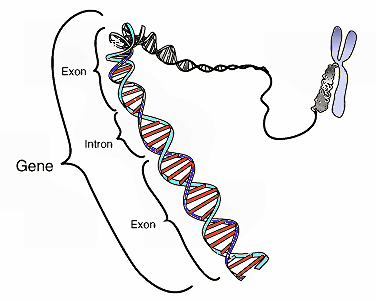Analysts found that most microscopic organisms in the gut microbiome are heritable subsequent to taking a gander at in excess of 16,000 gut microbiome profiles gathered more than a long time from a since quite a while ago examined populace of primates in Kenya's Amboseli National Park. The group additionally tracked down that few of the microbiome qualities heritable in primates are likewise heritable in people.
Our gut microbiome - the always showing signs of change "rainforest" of microorganisms living in our digestive organs - is principally influenced by our way of life, including what we eat or the prescriptions we take, most examinations show.
In any case, a University of Notre Dame study has tracked down a lot more noteworthy hereditary segment at play than was once known.
In the examination, distributed as of late in Science, scientists found that most microorganisms in the gut microbiome are heritable subsequent to taking a gander at in excess of 16,000 gut microbiome profiles gathered more than a long time from a since quite a while ago considered populace of monkeys in Kenya's Amboseli National Park. Notwithstanding, this heritability changes after some time, across seasons and with age. The group additionally tracked down that few of the microbiome characteristics heritable in primates are likewise heritable in people.
"The climate assumes a greater part in forming the microbiome than your qualities, however what this examination does is move us away from the possibility that qualities assume next to no part in the microbiome to the possibility that qualities play an inescapable, assuming little, job," said Elizabeth Archie, teacher in the Department of Biological Sciences and a chief examiner on the investigation who is additionally partnered with the Eck Institute for Global Health and the Environmental Change Initiative.
The gut microbiome plays out a few positions. As well as assisting with food absorption, it makes fundamental nutrients and helps with preparing the safe framework. This new examination is quick to show an authoritative association with heritability.
Past investigations on the gut microbiome in people showed simply 5 to 13 percent of organisms were heritable, yet Archie and the exploration group speculated the low number came about because of a "preview" way to deal with contemplating the gut microbiome: All earlier examinations just estimated microbiomes at one point on schedule.
In their examination, the scientists utilized fecal examples from 585 wild Amboseli primates, regularly with in excess of 20 examples for every creature. Microbiome profiles from the examples showed varieties in the monkeys' weight control plans among wet and dry seasons. Gathered examples included nitty gritty data about the host, including known relatives, information on ecological conditions, social conduct, demography and gathering level eating regimen at the hour of assortment.
The examination group tracked down that 97% of microbiome attributes, including generally variety and the wealth of individual organisms, were essentially heritable. Nonetheless, the level of heritability shows up much lower - down to just 5% - when tests are tried from just a solitary point on schedule, as is done in people. This accentuates the meaning of considering tests from a similar host after some time.
"This truly proposes that in human work, part of the explanation scientists haven't found that heritability is on the grounds that in people they don't have 10 years and half of fecal examples in the cooler, and they don't have all the underlying host (singular) data they need to coax these subtleties out," said Archie.
The group discovered proof that ecological variables impact quality heritability in the gut microbiome. Microbiome heritability was ordinarily 48% higher in the dry season than in the wet, which might be clarified by the monkeys' more assorted eating regimen during the blustery season. Heritability likewise expanded with age, as per the investigation.
Since the examination additionally showed the critical effect of climate on the gut microbiomes in mandrills, their discoveries concurred with past investigations showing that ecological impacts on the variety in the gut microbiome assume a bigger part than added substance hereditary impacts. Joined with their revelation of the hereditary segment, the group intends to refine its comprehension of the natural components included.
In any case, realizing that qualities in the gut microbiome are heritable makes the way for distinguishing microorganisms later on that are molded by hereditary qualities. Later on, treatments could be custom fitted for individuals dependent on the hereditary cosmetics of their gut microbiome.
The Amboseli Baboon Project, begun in 1971, is one of the longest-running investigations of wild primates on the planet. Zeroed in on the savannah mandrill, the venture is situated in the Amboseli biological system of East Africa, north of Mount Kilimanjaro. Examination groups have followed many monkeys in a few gatherings of people throughout their whole lives. Analysts at present screen around 300 creatures, yet have collected life history data on in excess of 1,500 creatures.
The examination was subsidized by the National Science Foundation.





![Is Helium a Noble Gas? [ EDU Science ]](https://blogger.googleusercontent.com/img/b/R29vZ2xl/AVvXsEhnf4spv6HGlGiVe5Zu3zN6z4KP91ZQfpPrQurkHaeBksi6eOYDbVr1Cyvfd51AP99ebC48IwK2xsGZIarbflINNfC5_FFYrfqg3h1qNR01uUzM_umyNUg2S5c8aWHKQLjBYSE9UoHSIw/w100/cartoon-happy-frog_160606-288-removebg-preview+%25283%2529.png)
![What is aerodynamics?[ EDU Science ]](https://blogger.googleusercontent.com/img/b/R29vZ2xl/AVvXsEhN4R6-c-aaMLVew58tuGqq54Gu1bN6I1ICP_wLrCZPVI9UttDlBVIMNzn9OGrIlSJ8sGwgb5JBsH8E8eMxy-sjgUmOIZvBjcE8OWuPMOauTQdjFe1slakhBWpqfeqZB8HHnLouFN_uNg/w100/unnamed.jpg)
0 Comments
If you have any doubt let me know.